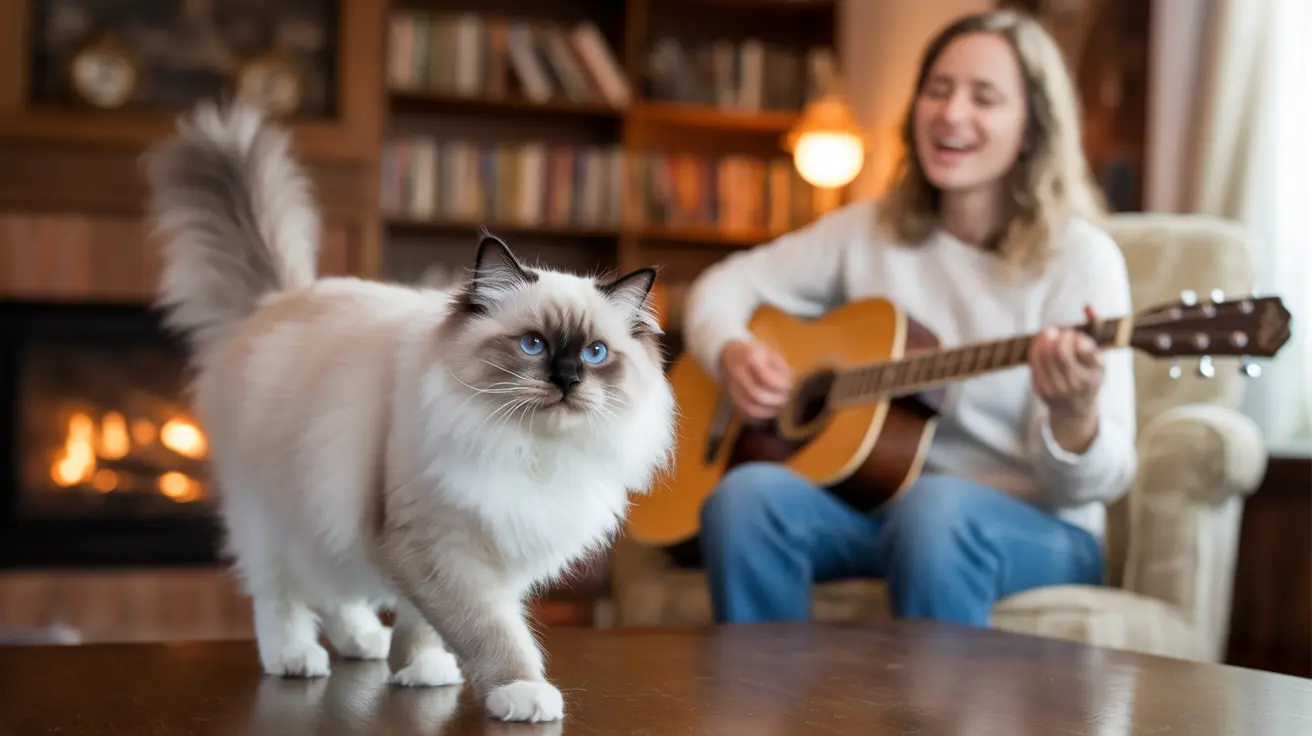Have you ever noticed your cat gravitating toward you during an impromptu singing session? This fascinating feline behavior has puzzled and delighted cat owners for generations. While our furry friends aren't known music critics, their reactions to human singing can reveal fascinating insights about the bond between cats and their owners.
In this comprehensive guide, we'll explore the science behind why cats respond to singing, what their various reactions mean, and how you can use your voice to strengthen your connection with your feline companion.
The Science Behind Your Cat's Musical Interest
Cats possess extraordinarily sensitive hearing capabilities, detecting frequencies up to 64 kHz – far beyond human hearing range. This advanced auditory system makes them particularly responsive to the nuances in human singing voices, especially higher pitches that might remind them of their own vocalizations.
Research suggests that cats can distinguish between regular speech patterns and melodic sounds, making singing a unique form of communication that captures their attention differently than everyday conversation.
Understanding Your Cat's Response to Singing
When you sing, your cat may exhibit various behaviors that indicate their interest or emotional response:
- Approaching and seeking physical contact
- Purring and slow blinking
- Head-butting or rubbing against you
- Settling nearby in a relaxed position
- Meowing or "singing" along
These reactions often stem from positive associations with your voice and the emotional connection they feel during these musical moments.
The Role of Emotional Bonding
Your cat's approach during singing may be linked to their ability to sense your emotional state. When you sing, you're likely in a positive mood, and cats are remarkably attuned to their owners' emotions. This musical interaction becomes a form of social bonding, similar to how cats interact with their feline families in the wild.
Creating Positive Musical Experiences
To make singing a rewarding experience for both you and your cat:
- Start with soft, gentle tones
- Pay attention to your cat's body language
- Maintain consistent singing routines
- Pair singing with positive experiences like treats or petting
- Respect your cat's preferences and comfort level
The Impact of Different Singing Styles
Not all singing affects cats the same way. Higher-pitched, melodic tunes often elicit more positive responses than loud or aggressive vocals. Some cats show particular interest in specific genres or songs, though this likely relates more to familiar sound patterns than musical appreciation.
When Singing Becomes a Special Bond
Many cat owners report that singing becomes a unique way to communicate with their pets. Whether it's a morning greeting song or a bedtime lullaby, these musical interactions can evolve into meaningful routines that strengthen the human-feline relationship.
Frequently Asked Questions
Why does my cat come closer or act affectionate when I sing to them?
Cats often approach when you sing because they associate your singing with positive experiences, emotional connection, and attention. Your melodic voice may also remind them of feline vocalizations, making them feel more socially connected.
How can I tell if my cat enjoys or dislikes when I sing?
Positive signs include purring, relaxed body language, slow blinking, and seeking proximity. Signs of discomfort include flattened ears, tail swishing, leaving the room, or showing signs of agitation.
Why does my cat bite me or act playful-aggressive when I sing?
Playful aggression during singing can be a sign of overstimulation or excitement. Some cats express their enthusiasm through gentle nips or increased activity, especially if singing has been previously associated with playtime.
What type of singing or music is best for calming my cat?
Soft, melodic singing with higher pitches tends to be most soothing for cats. Maintain a consistent, gentle volume and avoid sudden changes in tone or intensity.
How can singing help strengthen the bond between my cat and me?
Regular singing can create positive associations and routines, providing a unique form of interaction that combines vocal communication with emotional connection. This shared experience can deepen your bond over time.
Remember that every cat is unique, and their response to singing will vary based on their personality, past experiences, and individual preferences. Pay attention to your cat's reactions and adjust your musical interactions accordingly to create the most positive experience possible.






